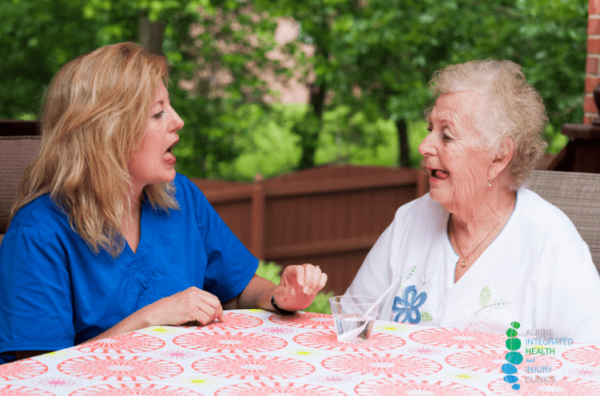Personality Changes After a Brain Injury
Traumatic brain injuries (TBIs) are among the most profound and life-altering medical conditions, affecting millions of individuals and their families worldwide. These injuries, resulting from external forces such as car accidents, falls, sports injuries, or violence, can lead to significant physical, cognitive, and emotional changes. Understanding the impact of brain injuries is crucial not only for the survivors but also for their loved ones, as the effects can alter the very fabric of their daily lives and relationships.
Brain injuries can range from mild concussions, often referred to as mild TBIs, to severe cases where the damage causes long-term complications or even death. Regardless of the severity, the aftermath of a brain injury may include a wide array of symptoms such as memory loss, impaired cognitive function, physical disabilities, and emotional and behavioral changes. Among the most distressing consequences for both the person injured and their family members are personality changes, which can manifest as mood swings, emotional lability, aggression, and a diminished capacity to express emotions or respond to emotional stimuli appropriately.
The journey toward recovery or adaptation is multifaceted, involving medical professionals, support groups, and often a long-term regimen of therapies such as speech therapy, physical therapy, and counseling for emotional support. The goal of treatment is not only to address the physical and cognitive impairments but also to help individuals and their families navigate the complex emotional landscape that comes with such profound changes in personality and behavior.
Understanding the impact of brain injuries, therefore, involves recognizing the broad spectrum of potential outcomes—ranging from physical symptoms like paralysis and poor balance to cognitive deficits affecting concentration and problem-solving, and emotional reactions that can leave families feeling as though their loved one has become a “different person.” It underscores the importance of proper treatment, support, and compassion in helping brain injury survivors and their families rebuild their lives and find a new sense of normalcy amidst the challenges they face.
Common Personality Changes After Brain Injury
Brain injuries, ranging from mild traumatic brain injuries (TBIs) such as concussions to severe head trauma, can lead to significant and sometimes lasting changes in a person’s personality. These alterations can profoundly affect not only the individual who has experienced the brain injury but also their family members and close friends. Understanding these common personality changes is crucial for providing the appropriate support and care needed for recovery.
Emotional Lability and Emotional Reactions
One of the most noticeable changes after a brain injury is emotional lability, which refers to rapid and often unpredictable changes in emotional state. Individuals may experience extreme emotional reactions to situations that previously would not have elicited such a response. This can include sudden outbursts of anger or frustration, as well as uncontrolled laughing or crying. These emotional symptoms can be distressing for both the person experiencing them and their loved ones.
Aggressive Behavior and Impulse Control
Aggression and a lack of impulse control are also commonly reported following a brain injury. Studies have shown that about 30% of traumatic brain injury survivors exhibit increased aggression. This can manifest as verbal outbursts, physical aggression, or even throwing objects. The root cause of this behavior is often linked to damage in the brain regions responsible for controlling impulses and regulating emotions, such as the frontal lobe.
Cognitive Impairments and Personality Changes
Cognitive deficits are another significant aspect of the aftermath of a brain injury. These can include problems with memory, concentration, information processing, and the ability to solve problems efficiently. Such cognitive impairments can lead to changes in personality, as individuals may struggle with tasks that were once easy for them, leading to feelings of frustration and a sense of loss of identity.
Social Behavior and Expressing Emotions
Changes in social behavior and the way emotions are expressed are also common. Some individuals may find it difficult to read social cues or express their emotions appropriately, leading to misunderstandings and strained relationships. Emotional expressions may be blunted (flat affect), or there might be mood swings from one extreme emotion to another without a clear cause.
The Importance of Support and Proper Treatment
Recovery and adaptation to these changes involve a comprehensive approach that includes medical treatment, rehabilitation therapies like speech therapy, and psychological support. Support groups play a vital role in providing a community where brain injury survivors and their families can share experiences and coping strategies. Proper treatment plans tailored to the individual’s specific needs can significantly improve outcomes and help manage symptoms.
Understanding and acknowledging these personality changes are the first steps towards helping brain injury survivors navigate their recovery process. It’s essential for family members and caregivers to remain patient and compassionate, recognizing that the survivor may feel like a “different person” but still needs love, support, and acceptance as they work through these challenging changes.
Factors Contributing to Personality Changes
Personality changes after a brain injury can be profound, affecting every aspect of the survivor’s life and significantly impacting their family members. These changes are not only challenging for the person experiencing them but also for those around them who may feel as though they are getting to know a different person. Understanding the factors contributing to these personality changes can help in managing their effects and guiding the recovery process.
Damage to Specific Brain Regions
One of the primary factors leading to personality changes is damage to certain areas of the brain. The frontal lobe, responsible for controlling emotions, impulses, and social behavior, is often affected by traumatic brain injuries (TBIs). When this area is damaged, individuals may exhibit increased aggression, lack of impulse control, and difficulties in expressing emotions appropriately. Emotional lability, characterized by rapid mood swings and emotional reactions, can also result from damage to various brain regions involved in emotional regulation.
Emotional and Behavioral Changes
The emotional and behavioral changes that follow a brain injury can be among the most challenging for survivors and their families. This includes a range of symptoms from emotional lability, where emotions can rapidly change without apparent cause, to flat affect, where the person shows little emotional expression. Aggressive behavior and angry outbursts can strain relationships, further complicating the recovery process.
Physical Symptoms
Physical symptoms of a brain injury, such as chronic pain, fatigue, and physical impairments, can also contribute to personality changes. The constant management of these ongoing symptoms can lead to emotional stress, affecting the individual’s mood and outlook on life.
Post Traumatic Stress Disorder (PTSD)
In cases where the brain injury is the result of a traumatic event, such as a car accident or an act of violence, PTSD can compound the emotional and behavioral changes experienced by the survivor. Symptoms of PTSD, including flashbacks, anxiety, and avoidance behaviors, can exacerbate the challenges faced during the recovery process.
Proper Treatment and Support
Managing the complex interplay of factors contributing to personality changes after a brain injury requires a comprehensive and personalized approach. This includes medical treatment to address physical symptoms, cognitive therapy to support impaired cognitive functions, and psychological counseling to help manage emotional and behavioral changes. Support groups offer a valuable resource for survivors and their families, providing a sense of community and shared experience.
Understanding the multifaceted causes of personality changes following a brain injury is crucial for providing effective support and treatment. With the right combination of medical care, therapy, and support, many survivors can navigate these changes and move forward in their recovery process.
Coping with Personality Changes
Coping with the myriad of personality changes after a brain injury can be a challenging journey for both the survivor and their family members. Understanding the root causes and manifestations of these changes is the first step toward managing them effectively. Here are strategies and insights into navigating this complex landscape.
Recognizing the Changes
Personality changes after a brain injury may manifest in various ways, including increased aggression, difficulty regulating emotions, mood swings, and changes in social behavior. Emotional lability, or rapid changes in emotional state, is common, as are shifts in cognitive function leading to cognitive deficits. These changes can stem from damage to specific brain regions, such as the frontal lobe, which plays a crucial role in emotional regulation and impulse control.
Support Systems
Creating a strong support system is vital for both the person experiencing personality changes and their family members. Support groups offer a sense of community and shared experience that can be incredibly comforting. These groups also provide practical advice on coping mechanisms from those who have gone through similar experiences. Engaging with a medical professional who understands the complexities of brain injuries can guide proper treatment plans, including medication management, speech therapy, and cognitive rehabilitation.
Communication Strategies
Effective communication is key to managing the impact of personality changes. Family members and caregivers might need to develop new ways to interact with their loved one, taking into account the emotional and behavioral changes they are experiencing. This could include learning to recognize triggers for emotional outbursts, adopting calming techniques, and finding ways to express emotions and needs constructively.
Emotional Regulation Techniques
For survivors, learning and practicing emotional regulation techniques can be helpful in managing their responses to emotional stimuli. This might include mindfulness practices, deep breathing exercises, and techniques learned in cognitive-behavioral therapy. Emotional regulation can help mitigate aggressive behavior and mood swings, contributing to a more stable emotional state.
Lifestyle Adjustments
Adjusting to a new lifestyle is often necessary for managing ongoing symptoms and promoting recovery. This might involve creating structured routines, setting realistic goals, and incorporating regular physical activity, which has been shown to have positive effects on mood and cognitive function. Ensuring a healthy diet and sufficient sleep are also crucial components of a holistic approach to recovery.
Patience and Understanding
Above all, patience and understanding from family members, caregivers, and the individuals themselves are crucial. Acknowledging that the recovery process is a marathon, not a sprint, can help set realistic expectations and foster a more supportive environment. It’s important to remember that while the person may seem different, at their core, they are still the same person, navigating a profoundly challenging period of their life.
Navigating personality changes after a brain injury requires a multifaceted approach, focusing on medical treatment, support systems, communication, and lifestyle adjustments. With the right strategies and a supportive network, families can work together to manage these changes and support their loved one through the recovery process.
Rehabilitation and Recovery Pathways
The Pathway to Rehabilitation
Cognitive Rehabilitation: Cognitive impairments are a common aftermath of brain injuries and addressing these is crucial for the recovery process. Cognitive rehabilitation techniques aim to improve cognitive processes through targeted exercises and tasks. This rehabilitation can help improve memory, attention, problem-solving skills, and cognitive flexibility. According to research published on NCBI, different combinations of cognitive rehabilitation techniques and pharmacotherapy can significantly benefit patients.
Speech and Language Therapy: Communication difficulties often arise after a brain injury, making speech and language therapy an essential component of rehabilitation. This therapy focuses on recovering linguistic skills and improving the ability to express emotions and needs effectively. Adaptive neuroplasticity, the brain’s ability to reorganize and form new neural connections, plays a key role in recovery, as highlighted in an article on NCBI.
Emotional and Behavioral Support: Coping with the emotional and behavioral changes after a brain injury is challenging for both the individual and their loved ones. Support groups provide a community where individuals can share experiences, strategies, and receive emotional support. Professional help from psychologists or psychiatrists may also be necessary to manage symptoms of post-traumatic stress disorder (PTSD), depression, and anxiety that often accompany brain injuries.
Physical Therapy: Physical symptoms such as balance issues, coordination problems, and weakness also need to be addressed through physical therapy. This therapy aims to restore physical function and improve the quality of life.
Family Involvement: Family members play a crucial role in the rehabilitation process. Educating family members about the effects of brain injury and effective communication strategies can help in creating a supportive environment for the individual. As noted by Caregiver.org, adapting to the personality changes and supporting the individual’s rehabilitation journey is paramount.
Embracing the New Normal
Recovery from a brain injury is a unique experience for each individual, with many facing long-term changes in their personality and cognitive abilities. Acceptance and adaptation are critical for both the individual and their families. Recognizing the progress made, celebrating small victories, and adjusting expectations can foster a positive outlook on the recovery journey.
It’s important to remember that while the path to recovery may be fraught with challenges, many patients can lead fulfilling lives post-injury. Continuous support, appropriate therapies, and a strong network of care can significantly impact the rehabilitation process, leading to meaningful improvements over time.






